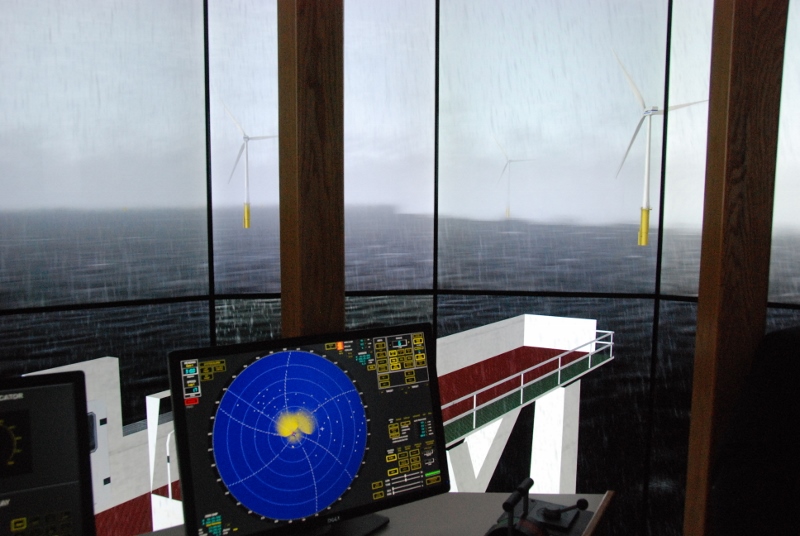New York state is providing $460,000 for the State University of New York Maritime College to establish two new programs to train mariners for work in the offshore wind energy industry and on LNG-fueled vessels.
The grant funding will support two initiatives: $230,000 to support the creation of an Offshore Energy Center and another $230,000 to support the establishment of a Liquified Natural Gas Center of Excellence at the SUNY Maritime campus at Throgs Neck, N.Y. The Offshore Energy Center will develop a wind operations technician training program, as well as dynamic positioning training and certification courses for offshore vessel operators. The Liquified Natural Gas Center of Excellence will create a certification in partnership with the liquid natural gas industry. Coursework from the program will also be incorporated into licensing programs for licensed mariners.
The money is part of a $15 million state investment in the first phase of the state’s Climate Jobs NY program, part of an initiative by Gov. Andrew Cuomo’s administration to develop clean-energy jobs and industries.
Since Deepwater Wind opened the Block Island Wind Farm in 2016, New York State has aggressively pursued making offshore wind a major part of its future energy mix. In March 2018 SUNY hosted a presentation by state energy planners and wind developers to the New York maritime community.
The college has already added programs to its Bouchard Transportation bridge simulator on campus, to prepare mariners for what it would be like to navigate past wind turbine arrays proposed near the approaches to New York Harbor.
“This (Off-Shore Energy) center will assist our nation’s push to renewable energy,” said Capt. Eric Johansson, a distinguished professor of marine transportation at SUNY Maritime, in a statement announcing the state grant. “New York State is working diligently to ensure that offshore wind is developed in the most responsible and cost-effective way possible. Maritime College is proud to support that effort.”
The Liquefied Natural Gas Center of Excellence will expand training options for professional mariners and others who work with the fuel. LNG is seen as more environmentally friendly and less expensive than other conventional fuels, and is making inroads in maritime applications including offshore service vessels, new Jones Act con/ro ships, and cruise ships.
College officials say the center will build partnerships and other collaborations between SUNY and the LNG industry, while bolstering technological innovation and investment in education.
“It will also offer opportunities for Maritime College students to learn from LNG experts, to collaborate on industry research projects, and to participate in construction and retrofitting projects,” according to the statement.
“With new global emissions standards looming, the marine shipping industry is increasingly looking at liquefied natural gas as an alternative to high-sulfur fuel,” said Ayman Alakkawi, professor in the college’s Department of Professional Education and Training.
“This evolution in LNG technology is providing a historic opportunity for American yards and the supporting industrial base to design, build and outfit some of the most technically advanced and environmentally friendly vessels,” said Alakkawi. With its LNG center “the college will be able to lead the innovation,” he said.
SUNY Chancellor Kristina M. Johnson said the college will be “part of the governor’s long-term energy solution”
“The alarms have sounded again and again on the consequences of climate change, overdependence on fossil fuels, and increased energy use and costs,” said Johnson. “SUNY is proud to provide high-quality, hands-on, and the most up-to-date clean energy education and training to our students, building a diverse, preeminent talent pipeline for today and tomorrow's clean energy industry in New York state.”




